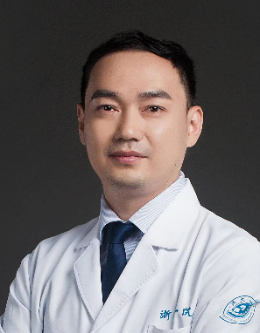Dr. YAN Senxiang, MD, PhD
Chairman of the department of radiation oncology
Chief Physician, Professor, Doctoral supervisor
Specialist in Breast Cancer Radiotherapy and Cardiac Protection

The Department of Radiation Oncology of FAHZU is excited to announce a specialized workshop program on "Respiratory Motion Management in Breast Cancer Radiotherapy." This program is meticulously designed to address the unique challenges of delivering precise radiotherapy for breast cancer patients, with a particular focus on motion management techniques. By combining clinical expertise, advanced technologies, and innovative research, the workshop aims to equip participants with the skills and knowledge to improve treatment accuracy and patient safety. Our target audience includes international medical students, residents, and fellows who are keen to deepen their understanding of respiratory motion management and its clinical applications. This program also fosters international collaboration and knowledge exchange, contributing to the global advancement of radiation oncology practices.
1. In-depth training on advanced respiratory motion management techniques, including deep inspiration breath hold (DIBH), optical surface monitoring systems (OSMS), and active breathing coordination (ABC).
2. Hands-on experience with cutting-edge radiotherapy equipment, such as the CyberKnife M6, and TOMO C.
3. Multidisciplinary team (MDT) training, focusing on the integration of radiotherapy with surgery, chemotherapy, and endocrine therapy for breast cancer patients.
4. Dedicated sessions on reducing cardiac and pulmonary radiation exposure using advanced motion management strategies, particularly for left-sided breast cancer cases.
5. Opportunities to participate in ongoing clinical studies and research projects on AI-driven tumor delineation, and radiomics.
6. Personalized mentoring and small-group training sessions to enhance the learning experience and encourage active participation.
1. Provide participants with a comprehensive understanding of respiratory motion management techniques and their clinical relevance in breast cancer radiotherapy.
2. Develop proficiency in using advanced radiotherapy technologies to improve treatment precision and minimize radiation-induced toxicities.
3. Equip participants with the ability to implement motion management protocols and tailor them to individual patient needs.
4. Foster critical thinking and research skills by involving participants in clinical and translational research projects.
5. Enhance international collaboration by sharing FAHZU’s expertise and promoting global standards in breast cancer radiotherapy.
The program offers flexible durations ranging from 2 weeks to 3 months, depending on the participant's schedule and learning objectives.
• Fellows: Qualified applicants must have completed a residency in radiation oncology or a related field at an accredited institution and demonstrate a strong interest in breast cancer radiotherapy.
• Residents: Applicants must be enrolled in a radiation oncology residency program with at least one year of clinical training completed. A recommendation letter from the program director is required.
• Students: Applicants must be final-year medical students with completed core/required clerkship rotations. A letter of good standing from the dean’s office, confirming academic excellence and expected graduation date, is mandatory.
Focus Areas:
1. Breast cancer radiotherapy with an emphasis on respiratory motion management for left-sided breast cancer cases.
2. Advanced radiotherapy techniques, including IMRT, IGRT, and SBRT.
3. Cardiac and pulmonary protection strategies during radiotherapy.
4. AI applications in radiotherapy planning, including tumor delineation and dose prediction.
5. Integration of radiotherapy with multidisciplinary treatment approaches for breast cancer.
Skills:
1. Mastery of respiratory motion management techniques such as DIBH, OSMS, and ABC.
2. Proficiency in the use of advanced radiotherapy systems like CyberKnife M6 and TOMO C.
3. Practical experience in reducing radiation exposure to the heart and lungs.
4. Research skills in analyzing and interpreting radiomics data to predict treatment outcomes.
5. Hands-on training in quality assurance and safety protocols for radiotherapy.
Monday
1st Week: introduction & welcome, program overview and objectives, department introduction
Weekly: MDT conferences focusing on breast cancer cases, interactive case discussions on motion management challenges
Tuesday
Weekly: outpatient clinic observation, academic lectures on motion management in breast cancer radiotherapy, practical sessions on DIBH and OSMS
Biweekly: research discussions on AI and radiomics applications in breast cancer
Wednesday
Weekly: clinical rounds, radiotherapy planning and observation sessions, case-based discussions on cardiac and pulmonary protection strategies
Biweekly: simulated training on advanced motion management techniques
Thursday
Weekly: journal club on recent advances in breast cancer radiotherapy, hands-on training with CyberKnife and TOMO systems
Biweekly: specialized sessions on OAR protection
Friday
Weekly: feedback sessions with mentors, wrap-up discussions on weekly learning objectives
Last Week: feedback sessions with mentors, wrap-up discussions on weekly learning objectives
Assessment Methods:
1. Practical skills evaluation during hands-on sessions on DIBH and OSMS.
2. Written examination to test theoretical knowledge of respiratory motion management.
3. Submission of a reflective report summarizing learning outcomes and practical insights.
Feedback:
1. Regular one-on-one feedback sessions with faculty members.
2. Anonymous surveys to gather participant feedback for program improvement.
Certification:
Certificates of completion will be awarded to participants who meet all program requirements, including assessments and active participation.

Chairman of the department of radiation oncology
Chief Physician, Professor, Doctoral supervisor
Specialist in Breast Cancer Radiotherapy and Cardiac Protection

Associate Chief Physician, Associate Professor, Doctoral supervisor
Specialist in Breast Cancer Radiotherapy and Cardiac Protection

Senior Medical Physicist, Specialist in Motion Management and Radiotherapy Safety

Senior Radiation Therapist, Expert in DIBH Training and Patient Education
The program is free of charge.